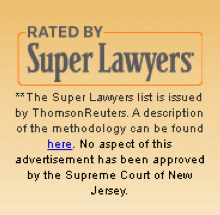What is Medicaid Long Term Services & Supports (MLTSS)? Medicaid is the government program that pays for nursing home care, assisted living, adult day care or home health for eligible people. Generally the applicant’s non-excluded, available resources must be below $2,000. Does their spouse have to be broke as well? No. If the applicant is married, their spouse who does not require Medicaid benefits can retain the marital home, the car and up to $157,920 (2025) in assets or half the marital assets, whichever is less (the Community Spouse Resource Allowance or CSRA). And there’s no limit on the amount of income that the spouse can have.
Paying for Nursing Home Care
The extraordinary cost of long-term nursing care can swiftly deplete a person’s life savings and create great hardship for the spouse who remains in the community. Inability to pay for care for a family member with Alzheimers or other cognitive disorders may result in inadequate arrangements patched together by desperate family members. Medicare and most health insurance plans don’t pay for this kind of care in either a residence or a nursing home.
Younger retirees may be wise to purchase long-term care insurance for themselves, but those who are already ill, frail or aged may not be able to do so. The Medicaid Program is available as a payer of last resort for those who have become financially eligible.
“Spend down” and then apply; How does a person apply for Medicaid? Working with one of our attorneys, you will design a “spend-down plan” that is tailored for your household, which reduces the countable assets to the required levels and preserves as much as possible by working with the laws and regulations. The application is filed after the “spend-down” is completed, and must be supported by substantial, detailed financial records and other evidence covering the prior 5 year “look-back period.”
Transfers of the Home or Other Assets
What’s the 5-year lookback? If the applicant’s assets were transferred (gifted) to somebody else during the 5 year “look-back” period preceding the application, those gifts will generally trigger a disqualification period known as a “transfer penalty.” The penalty period begins at the time the applicant has completed the spend-down process and is otherwise eligible for Medicaid benefits.
During the penalty period, the State will not pay for the long-term care that is needed.
Certain exceptions exist to the basic transfer penalty rules. Assets can be protected within the laws created by Congress for this program. We help our clients take full advantage of all such opportunities.
For more information on navigating the minefield of real estate transactions in Elder Law planning, please see Preserving the Primary Residence.
Medicaid Application Process
Our Firm has over 30 years of experience in assembling, evaluating, preparing, presenting and defending Medicaid applications for our clients. We can manage the burdensome details for you. We can help you to take advantage of all opportunities created by federal law to preserve what can be preserved.
The Application process can be complex, requiring up to five years of cancelled checks, receipts and bank statements along with a detailed explanation of all cash withdrawals and movement of funds between accounts. You will need to provide 5 years of documentation to show all your financial transactions.
Fink Rosner Ershow Levenberg Marinaro LLC, Attorneys at Law, provides you with the vigorous advocacy that you need in navigating the complexities of Medicaid.
Frequently Asked Questions
Q. What Is Medicaid?
A. Medicaid is a federal program administered through the local county Board of Social Services where the applicant resides. Medicaid is funded jointly by federal & state governments.
Q. Do I have to be able to pay for nursing home care for 5 years before applying for Medicaid?
A. Not necessarily. Applications can be filed as soon as you achieve financial eligibility, taking into account the Community Spouse Resource Allowance (CSRA), exempt transfers, and strategic planning involving gifts and highly restrictive annuities.
Q. Does the State take my house?
A. No. To protect the house if you need nursing care, it is critical to understand the five year look-back rules that enable the applicant to preserve the home under certain circumstances.

Navigating the Complexities of Medicaid
At Fink Rosner Ershow-Levenberg Marinaro, your case is managed by a team comprised of an Attorney and our specialized Legal Assistant.
These applications are complicated! We can help you complete your application, too.
We Make House Calls

